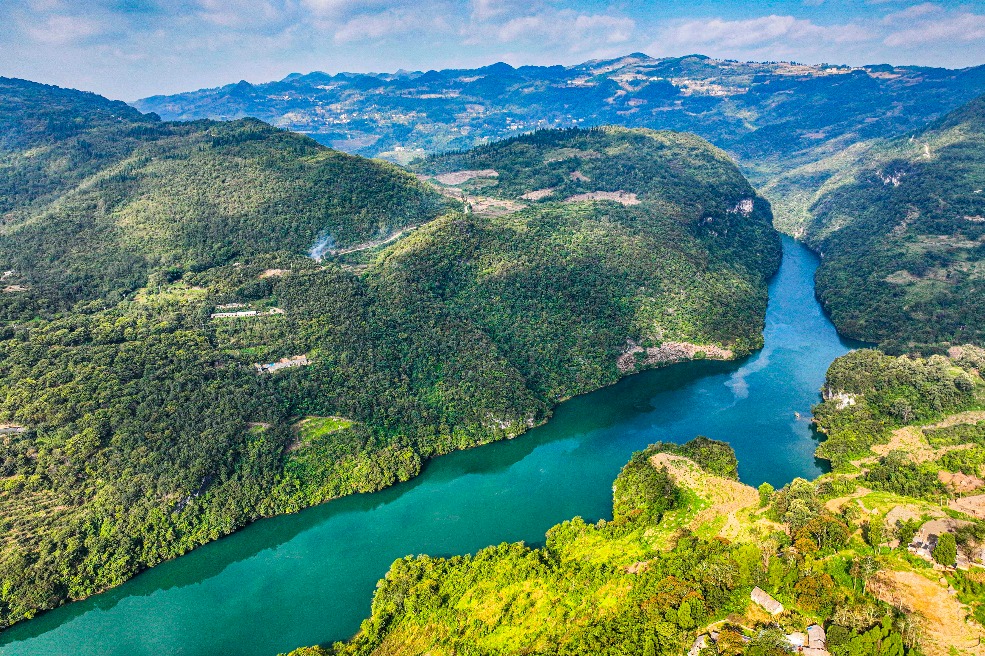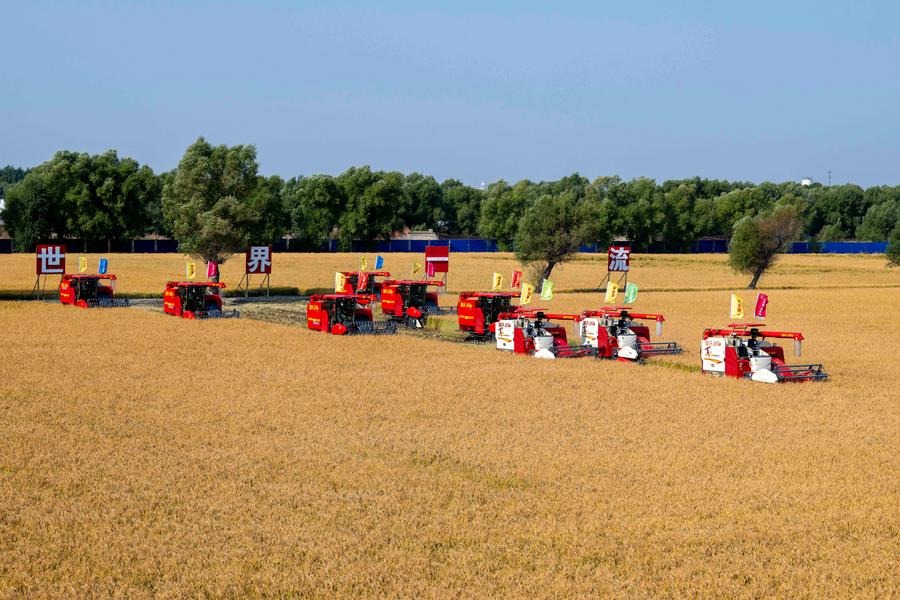Two Chinese scientists selected to lead disaster risk reduction project

Two Chinese scientists were named leaders of the UNESCO Chair for Mountain Disaster Risk Reduction and Resilience in Beijing on Sunday. The initiative aims to advance knowledge and practices to tackle the interdependent challenges of today's increasingly complex world.
Cui Peng, an academician of the Chinese Academy of Sciences and chief scientist at the China-Pakistan Joint Research Center on Earth Sciences, is now chair of the project, while Yang Saini, executive director of the Integrated Research on Disaster Risk program and a professor at Beijing Normal University, serves as assistant chair.
"As global climate change has an increasingly profound impact on human society, extreme weather events and the natural hazards triggered by climate change pose severe threats to food security, water resources, ecosystems, energy supply, urban operations and the safety of human lives and property," said Liu Weidong, director-general of the international cooperation bureau of the Chinese Academy of Sciences.
Research by scholars from the academy shows that since 2008, natural disasters worldwide — particularly in mountainous regions — have become increasingly complex, Liu said, adding that they are now more difficult to detect and growing stronger.
He noted that new and evolving disaster risks emerging from environmental, climate and societal changes have surpassed current capabilities and understanding in disaster risk research and prevention, underscoring the need to strengthen societal resilience.
Liu made the remarks at the unveiling ceremony of the UNESCO Chair for Mountain Disaster Risk Reduction and Resilience, held during the opening of the two-day 2nd International Conference on Climate Change and Disaster Risk.
Cui emphasized the increasing vulnerability of mountainous areas due to climate change, noting that the terrain makes them more prone to disasters, while limited economic development reduces resilience.
"Around 70 percent of China's territory consists of mountainous regions or plateaus, while globally, 30 percent of the land area falls into these categories," Cui said, adding that these regions cannot be left behind if the world is to achieve high-quality development.
He said the purpose of applying for the UNESCO Chair was to reduce loss of life and property in mountainous regions caused by disasters, and to explore ways to integrate disaster reduction with regional economic development to benefit local communities.
Yang said China will better leverage global resources and share its extensive experience and lessons learned in disaster risk reduction through the UNESCO platform, while also introducing effective international practices. Such mutually beneficial cooperation serves as "an augmenter in global disaster risk reduction", she said.
Shahbaz Khan, director of the UNESCO Beijing Office, noted the highly competitive nature of the UNESCO Chair program in China and extended his congratulations.
"UNESCO Chairs are not individuals but networks. They promote research, promote education and help with capacity building," Khan said.
He added that the achievement is not only key to advancing the United Nations Sustainable Development Goals but also vital to building capacity in countries of the Global South.
Wang Fawu, a professor at Tongji University and chairholder of the UNESCO Chair on Geoenvironmental Disaster Reduction, said the new chair could generate deliverables with global impact and international influence.
"This achievement will further enhance China's role and position in the global disaster risk community," Wang said.
limenghan@chinadaily.com.cn
- Two Chinese scientists selected to lead disaster risk reduction project
- Four villages honored by UN Tourism
- China, EU expected to play key role at COP30
- Farmers return to their roots to reap abundant profits
- New international body for mediation formed in Hong Kong
- Bogota to present Shanghai Award, a first for South America




































